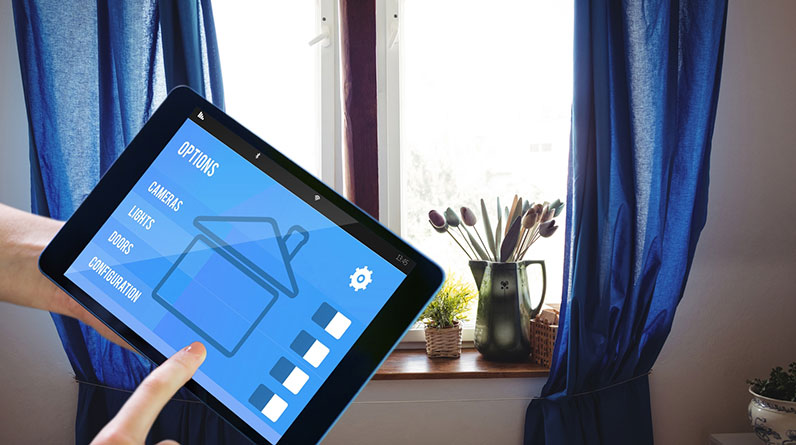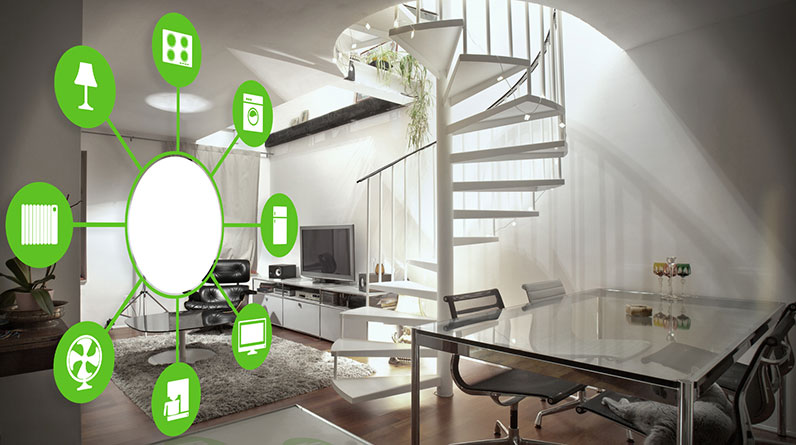
Pros and Cons of Home Automation
Whether you’re looking for convenience, energy efficiency, or security, home automation systems can be a great investment. However, it’s important to consider all the pros and cons before you make a decision about installing smart technology in your home.
One of the main benefits of automating your home is convenience. Having a system that allows you to control lights, appliances, and more from the comfort of your sofa can save you time and effort.
The Pros
The main pros of automating your home consists of Cost, Convenience, Energy Efficiency, and Security. Let’s look at these more closely.
Cost
Automating your home can be an excellent way to save on energy costs, while also reducing your environmental impact. It’s also a great investment for your comfort and security.
Automation systems connect to many different devices, from security sensors and thermostats to appliances like dishwashers, ovens, and washing machines. They are often controlled remotely through a smartphone app or a remote control.
The cost of automated home systems depends on the type of system and what you want to use it for. Some systems can be quite affordable, but others are much more expensive.
For example, a lighting automation system will cost between $1,000 and $3,000 with installation. It can include smart lamps, dimmers, and light switches.
Other systems may be more expensive, such as a whole-home heating and cooling system. These can be expensive to install, but they can save you money in the long run by cutting your heating and air conditioning bills.
In general, the more complex your home’s automation system is, the more expensive it will be. This can be because of the number of components and the amount of wiring that must be put into place.
It can also be because of the protocol the system uses to communicate with other devices. There are two basic protocols for home automation, hardwired and wireless.
A wireless protocol operates over your home’s internet connection, while a hardwired protocol is wired into the walls of the house. It’s important to choose a protocol that is compatible with the devices you plan to add to your system.
You’ll also need to ensure that your internet connection is stable and strong enough to support the devices and appliances you want to connect to your smart home system. If your connection is slow or unstable, you’ll need to invest in a Wi-Fi booster to make it faster and more reliable.
It’s a good idea to consult a professional for advice on which type of system to install in your home. These professionals can help you decide which features will be most beneficial for your budget and lifestyle. They can even help you create a customized system for your needs.
Convenience
Home automation is a great way to improve convenience and increase security. It allows you to control all of your devices from a single app or dashboard. You can also set automation schedules to ensure that your appliances and devices are only on when you need them.
Convenience is a big reason why many homeowners are investing in smart home systems. They make it easier for people to control the temperature and lighting in their homes, and can help save them money on energy bills.
For instance, a thermostat can be programmed to adjust the temperature of your house based on your habits, which can help you save energy and money. You can also automate lights so that they turn off when you leave the house. This is a great way to avoid wasting energy and money, and can be a great way to help the environment.
Another great convenience is the ability to control your home from anywhere in the world. You can check in on your family, make sure they are safe and secure, and even control your lighting, security system, and music playing.
Some smart systems even let you control your home with the sound of your voice, such as Amazon Alexa and Google Assistant. This helps you to save time and reduce the hassle of having to manually turn your lights off, adjust your thermostat or play music – all without lifting a finger.
You can also use your voice to disarm a security system or say hello to a visitor. These features are a great way to increase the safety of your home, and can be especially useful for older families or those who work long hours.
Having your doors automatically lock is another great benefit of home automation. This is a great way to prevent someone from entering your home, and can also be handy for when you’re running late to work or school and don’t want your kids to have access to your keys.
Home automation is an excellent way to keep your family safe and comfortable at all times. It allows you to monitor your home while you’re away and gives you the peace of mind that you need. You can even give trusted family members access to your system so they can be aware of any suspicious activity in your home, and can take action if necessary.
Energy Efficiency
Home automation is a great way to cut down on energy costs. Smart thermostats and lighting controls make it easy to save on your energy bills while keeping your home comfortable. Similarly, appliances that are connected to a home automation system can be automatically shut off when they are not in use.
As with all other aspects of home automation, the exact savings you’ll achieve will depend on a variety of factors. Generally, larger homes will see the biggest benefits from smart technology, but even smaller spaces can benefit greatly from some energy-saving improvements.
For example, some systems allow you to monitor the outside temperature and adjust your thermostat accordingly if it is too hot or too cold. Alternatively, they can also set timers that open and close window shades to passively cool or heat your home.
Other appliances that can be controlled via a home automation system include vacuum cleaners, air purifiers, and even coffee makers. You can even set these devices to shut off when they aren’t being used, saving you a lot of money on your electric bill!
The best part about this is that you can control these devices from anywhere. Just log on to your home automation system via your smartphone and control your appliances, lighting, security systems, and more.
Another benefit of home automation is that it can reduce your carbon footprint. An energy-efficient home is more sustainable, as it will use less resources to create the same amount of comfort.
While energy efficiency is often overlooked by many people, it’s actually a critical tool for helping to combat climate change. It helps reduce our dependence on fossil fuels, improves the stability of the power grid, and saves families money.
It’s important to note, though, that while the technologies and designs are integral parts of energy efficiency, they have to be activated by people in order to have the most impact. Research has shown that 30 percent of the energy savings potential for high-efficiency technologies is lost due to a variety of social, cultural, and economic factors.
Security
A good home automation system provides a wide range of services that will benefit you and your family. It is cost effective and offers convenience and security. You can monitor your home from a distance, and you can automate different systems and appliances to help you save money on energy costs.
Home automation can also be helpful for people who have disabilities. It can provide assistance with daily living tasks, reducing the need for caregivers. It can also help people who are recovering from trauma to manage their daily lives more independently.
Consider the Cons
However, while the technology has many benefits, it also presents some risks to consumers. Some of these risks include privacy breaches, security vulnerabilities, and more.
1. Privacy concerns: Data is continuously collected, stored, and transmitted by smart home devices. This means that hackers may be able to gain access to your personal information and use it against you.
2. Cyber-criminals are very skilled in hijacking security systems. They can reroute your security cameras, alter your video feed, and change the data that is recorded by your devices.
3. Hackers can take advantage of weak passwords and other security issues to gain access to your devices.
4. Hackers can also hack into your internet accounts and steal your personal information, emails, or social media accounts.
5. Cyber-criminals can also hack into your device to steal your money, bank account, and credit card numbers.
6. Viruses and malware can be found on most of these devices.
7. The devices and apps connected to your home network should be updated regularly.
8. Make sure to choose a password for each device that you use. Choosing a strong password is the first step to security. You should also be sure to activate all of the security features that your device provides, and you should set up alerts if you lose connection.
9. Security protocols: There are a few types of protocols that smart home devices can use to communicate with each other. Some protocols are more secure than others, so it is important to find out which one you should be using.






